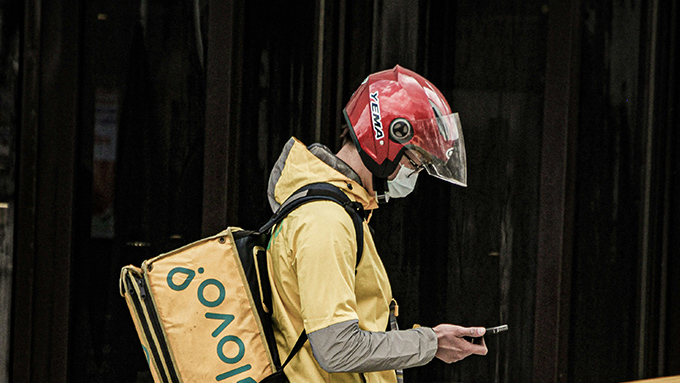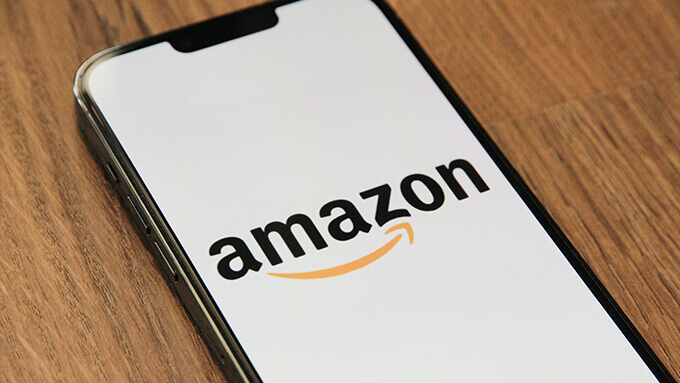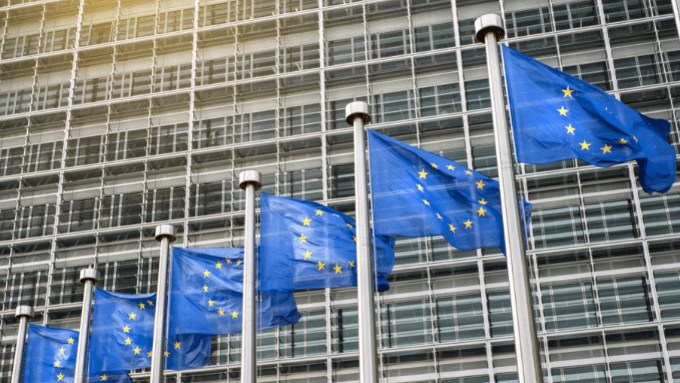Gun Jumping in Turkish Competition Law
Introduction
In Turkish competition law, certain types of mergers and acquisitions are subject to Turkish Competition Board’s (“Board”) approval in order to gain legal validity. Pursuant to Article 7 of the Law No. 4054 on the Protection of Competition (“Law No. 4054”), the Board is competent to define mergers and acquisitions which require approval. Article 7 of the Communiqué Concerning the Mergers and Acquisitions Calling for the Authorization of the Competition Board (“Communiqué No. 2010/4”) sets forth the general framework on this front. According to the relevant article, mergers and acquisitions that lead into a permanent change in control and where the turnover of the transaction parties exceed certain thresholds are subject to the Board’s approval. Although subject to the Board’s approval, mergers and acquisitions that are not notified and carried out without approval may bring out various consequences.
By means of the Board’s recent decision concerning the imposition of an administrative fine on Elon Musk[1], transactions carried out without approval have become once again a hot topic in competition law. In this article, the legal framework for transactions realized without the Board’s prior approval, so-called “gun jumping” is discussed alongside with the Board’s approach to the subject.
Sanctions Applied to Unauthorized Mergers and Acquisitions
In case of gun jumping, Article 11 of the Law No. 4054 is applied. When a merger or acquisition which requires the Board’s approval is not notified, the Board initiates an examination on its own initiative, when it becomes aware of the transaction in any way. The Board may generally become aware of the transaction upon complaints or during the examination of other transactions notified to the Board.
Firstly, the Board evaluates whether the transaction falls within the scope of Article 7 of the Law No 4054. In other words, the Board examines whether the transaction significantly lessens effective competition. Therefore, the Board approves the merger or acquisition in case it opines that the transaction does not contain any competitive concern, meaning that the Board would have approved the transaction in the first place if it had been notified. However, the Board imposes an administrative fine due to failure to notify.
The administrative fine to be imposed on undertakings concerned as a result of failure to notify is calculated in accordance with Article 16(1)(b) of the Law No. 4054. Therefore, an administrative fine is imposed at the rate of one thousandth of the undertaking’s annual gross revenue generated at the end of the financial year preceding the date of the decision. If the sum calculated is found to be below the minimum administrative fine amount determined for the relevant year, then the minimum administrative fine amount is taken as a basis. [2] It is noteworthy that the undertaking subject to the administrative fine will be all transaction parties in merger transactions and the acquirer party in acquisitions and the establishment of joint ventures.
In case the transaction falls within the scope of Article 7 of the Law No. 4054 and results in the significant lessening of effective competition, another consequence for gun jumping takes place, which is the abolition of the transaction, together with all its legal consequences, until the Board’s approval. Pursuant to Article 10 of the Communiqué No. 2010/4, a merger or acquisition subject to approval cannot gain legal validity before a decision is taken expressly or implicitly. In this respect, pursuant to Article 11 of the Law No. 4054, the Board may decide to (i) terminate the transaction, (ii) remove all de facto legal consequences of every action that has been taken unlawfully, (iii) return all shares and assets, if possible, to their former owners (iv) or if it is not possible, assign and transfer them to third parties, (v) forbid participation in the control of these undertakings until this assignment takes place and (vi) take all other measures it deems necessary. Moreover, in addition to the said sanctions, the Board also imposes an administrative fine on the relevant undertakings due to the violation of Article 7 of the Law No. 4054. In this case, as defined in Article 16(4) of the Law No. 4054, the Board imposes a monetary fine of up to ten percent of the undertakings’ annual gross revenue generated at the end of the financial year preceding the date of the final decision.
The Board’s Previous Practice
When the Board’s case law is examined, it is seen that there are various decisions where an administrative fine was imposed on undertakings due to the fact that a merger or acquisition subject to the Board’s approval had been carried out before the transaction was notified to the Board and also decisions where an administrative fine was imposed as the Board had not been notified of the transaction at all.
For instance, in Brookfield/JCI decision[3], the Board evaluated that the transaction did not lead into the significant lessening of effective competition. However, the closing date of the transaction which was defined to be subject to approval was 30.04.2019, whereas the notification to the Board had been made on 09.10.2019, nearly 5 months later. The Board approved the transaction. However, as the transaction was realized without the Board’s approval, the Board imposed an administrative fine on the acquirer Brookfield Asset Management Inc. at the rate of one thousandth of its 2018 gross revenue, in accordance with Article 16(1)(b) of the Law No 4054.
In BMW/Daimler/Ford/Porsche/Ionity decision[4], the merger control filing dated 2020 regarding the transaction which envisaged HMG’s acquisition of shares and the participation in the joint control of Ionity, which is jointly controlled by BMW, Daimler, Ford and Porsche was evaluated. In the decision, it is stated that Ionity joint venture was established in 2017. Subsequently, it was mentioned that Ionity was not conducting any activities in Turkiye and therefore, as a result of the transaction, the effective competition would not have been significantly reduced within the meaning of Article 7 of the Law No. 4054. In light of this, the Board approved the transaction. However, as the transaction related to the establishment of Ionity joint venture had not been previously notified to the Board, it was evaluated within the scope of Article 11(a) of the Law No. 4054. As a result, the Board imposed administrative fines on BMW, Daimler, Ford ve Volkswagen[5] as the parent undertakings of the joint venture due to the fact that the transaction was notified to the Board on time. For completeness, the administrative monetary fines defined in accordance with Article 16(b) of the Law No. 4054 were at the rate of one thousandth of the relevant undertaking’s gross revenue generated in 2019.
Administrative Fine Imposed on Elon Musk
There are not many recent decisions where the Board has dealt with gun jumping. However, the Board’s recent decision to impose an administrative fine on Elon Musk sheds light on its current practice with respect to gun jumping.
As a result of the ex-officio examination of the transaction concerning the acquisition of Twitter Inc. by Elon Musk within the scope of Article 11 of the Law No. 4054, the Board decided that the transaction is subject to approval as per Article 7 of the Law No. 4054 and the Communiqué No. 2010/4. The Board decided that the transaction should be granted approval since the transaction would not lead into any significant lessening of effective competition. However, the Board decided to impose an administrative fine on the acquirer Elon Musk, at the rate of one thousandth of the gross income generated in Turkiye in 2022, due to the fact that the transaction was carried out without obtaining approval from the Board.
For the sake of completeness, according to paragraph 21 of the Guidelines on Undertakings Concerned, Turnover and Ancillary Restraints in Mergers and Acquisitions, real persons are individually considered as undertakings within the meaning of the Law No. 4054 in case they carry out economic activities via their rights of control on an economic entity. In acquisitions realized by real persons who are deemed as undertakings, the undertakings concerned will be the acquiring real persons. Therefore, for the case at hand, it is possible to impose an administrative fine directly on Elon Musk as the acquiring undertaking.
The sanction imposed on Elon Musk as a real person is similar to the Board's approach in Ersoy/Sesli decision[6]. In this decision, it was evaluated that the transaction concerning the establishment of the undertaking entitled Anayurt Kömür Madencilik Sanayi ve Ticaret A.Ş. which was jointly controlled by Ali Murat Ersoy, Hazim Sesli, Mehmet Sesli, Abdülkadir Sesli was realized without being notified to the Board. The Board imposed an administrative fine against real persons who were parties to the transaction and were in the position of acquirers, due to failure to notify the transaction regarding the establishment of the joint venture. In this respect, it is possible to conclude that it is a common practice for the Board to impose administrative fines directly on individuals in cases where real persons are acquirers.
Conclusion
Although being subject to the Board’s approval, mergers and acquisitions which are not notified may lead to severe consequences. For this reason, before carrying out any merger or acquisition transaction, it should be carefully evaluated whether it is obligatory to obtain the Board’s approval so that the transaction can gain legal validity. If it is determined that the transaction is subject to the approval of the Board, it is important not to realize the transaction until the Board’s evaluation process is concluded and the transaction is authorized. Considering the Board’s sensitive approach on the subject, it is highly important that economic entities and real persons who are in the position of transaction parties review the notification conditions in Turkiye and their obligations before carrying out any national or international mergers and acquisitions.
- See Turkish Competition Authority’s announcement dated 06.03.2023, https://www.rekabet.gov.tr/tr/Guncel/elon-r-musk-tarafindan-twitter-inc-in-te-7f3c2a3ff0bbed118eb0005056850339 (Last accessed: 21.03.2023).
- The minimum limit for administrative fines, which are applicable within the scope of Law No. 4054, has been determined as 105,688 TL, valid from 01.01.2023 to 31.12.2023.
- The Board’s Brookfield/JCI decision dated 30.04.2020 and numbered 20-21/278-132.
- The Board’s BMW/Daimler/Ford/Porsche/Ionity decision dated 28.07.2020 and numbered 20-36/483-211.
- Ionity's shareholders, BMW, Daimler, Ford and Porsche are qualify as relevant undertakings. Volkswagen, on the other hand, is considered as a transaction party since it controls Porsche.
- The Board’s Ersoy/Sesli decision dated 25.06.2014 and numbered 14-22/422-186.
All rights of this article are reserved. This article may not be used, reproduced, copied, published, distributed, or otherwise disseminated without quotation or Erdem & Erdem Law Firm's written consent. Any content created without citing the resource or Erdem & Erdem Law Firm’s written consent is regularly tracked, and legal action will be taken in case of violation.
Other Contents

The U.S. District Court for the District of Columbia (“Court”) issued its memorandum opinion (Memorandum Opinion) on November 18, 2025, in the antitrust case (“Case”) between the Federal Trade Commission (“FTC”) and Meta Platforms Inc. (“Meta”). The FTC alleges that Meta monopolized the market…

No-poach agreements, which have become one of the most prominent concepts in global competition law in recent years, are defined in the Glossary of Competition Terms as “agreements, whether direct or indirect, whereby one undertaking agrees not to make job offers to, or hire, the employees of another...

The Competition Board (“Board”) has broad powers to request information from undertakings. The legal basis for this authority is provided by Article 14 of Law No. 4054 on the Protection of Competition (“Law No. 4054”). Under this provision, the Board may request any information it deems necessary from public...

Competition authorities around the world have increasingly focused on labor market infringements under competition law, issuing new regulations and guidance recently. Notable examples include the U.S. Department of Justice and Federal Trade Commission’s joint guidance, the Japanese Fair Trade Commission’s...

Chapter 8 of the General Data Protection Regulation (“GDPR”) sets out the legal remedies available to data subjects in the event of a breach of their rights under the GDPR. Accordingly, each data subject has a right to lodge a complaint with the supervisory authority of the Member State in which they reside, work...

Mergers and acquisitions play a critical role in shaping the competitive structure of the market. Although such transactions can lead to positive outcomes such as the provision of products and services at lower prices, the development of new products and technologies, and improvements in quality, they may also...

Technology and the opportunities it brings undoubtedly play a key role in strengthening the competitiveness of market players. In this context, pricing algorithms that enable undertakings to monitor publicly available prices and optimize their own pricing strategies have become widely used, especially by digital platforms...

The Regulation on Fines to Apply in Cases of Agreements, Concerted Practices and Decisions Restricting Competition, and Abuse of Dominant Position (“Former Regulation on Fines”), which entered into force upon its publication in the Official Gazette dated February 15, 2009 and numbered 27142, was...

In the past years, the Turkish Competition Board (“Board”) has closely monitored the activities of undertakings operating in the retail sector. As a result of the Board’s record of administrative fines, horizontal type of violations in the retail sector have been highly publicized. Vertical violations such as resale price...

In recent years, numerous automobile manufacturers have announced their goals to reduce carbon emissions, with many brands setting net-zero carbon targets spanning from production processes to the lifecycle of their vehicles. While ongoing debates persist regarding the significantly higher carbon footprint of...

Under Article 15 of Law No. 4054 on the Protection of Competition (“Law No. 4054”), the Competition Board (“Board”) may conduct on-site inspections at the undertakings’ premises when it deems necessary in fulfilling the duties assigned to it. During the on-site inspection, the Board is authorized to examine all...

Agreements and information exchanges between undertakings in labor markets have recently been examined in various preliminary investigations and investigations initiated by the Turkish Competition Authority (“Authority”). Following the investigations in which some undertakings were subject to...

The Turkish Competition Board’s (Board) decision regarding the acquisition of the international road transport business line of Ekol Lojistik AŞ (Ekol) by DFDS A/S (DFDS) has been one of the most prominent transactions on the competition law agenda recently...

The Competition Board (“Board”) has broad powers to request information from undertakings. The Board’s authority to request information arises from Article 14 of the Law No. 4054 on the Protection of Competition (“Law No. 4054”). Under the relevant provision, the Board may request any information it deems...

Doğuş Otomotiv Servis ve Ticaret A.Ş. (Doğuş) applied to the Turkish Competition Authority for an exemption for the practice of recommending basic wages to be applied to sales and after-sales service employees of its authorized dealers and distributors...

Access to Instagram was blocked ex officio by the Information and Communication Technologies Authority (ICTA) as of 2.08.2024. Under Article 8 of Law No. 5651 on the Regulation of Publications on the Internet and Combating Crimes Committed Through These Publications, ICTA can issue an ex officio access...

It is well known that agreements between employer undertakings with regards to their employees, such as wage-fixing and non-poaching agreements, along with competitively sensitive information exchanges have been under the scrutiny of competition authorities all over the world, including the Turkish Competition...

Automotive is one of the sectors in which the world’s most significant investments are made. The Competition Board (“Board”) has been closely interested in the automotive sector over the years and has conducted various examinations and studies in this field...

Competition authorities around the world continue unabated to investigate competition concerns arising from data collection and processing activities of digital platforms and impose severe sanctions as a result...





The startup ecosystem in Turkey has experienced notable growth in recent years. In the last quarter of 2023, 81 startups secured a combined investment of around 60 million dollars. While the number of investments remained consistent when comparing the third quarter periods of 2022-2023, there was a decrease...

Hub and Spoke cartel is a type of violation that is not clearly defined and regulated under Law No. 4054 on the Protection of Competition (“Law No. 4054”). Decisional practices of foreign competition authorities, particularly the UK Competition and Markets Authority’s decisions (“CMA”), are instructive concerning...

The Competition Board ("Board") made an addition to its line of decisions on resale price maintenance with its decision on Sunny Elektronik Sanayi ve Ticaret A.Ş. ("Sunny") . In its decision, the Board thoroughly examined the allegations regarding Sunny's involvement in maintaining resale prices and restricting...

It is observed that the Competition Authority (“Authority”) has recently scrutinized various industries such as fast-moving consumer goods, labor market, pharmaceuticals, and cement. When the reasoned decisions of the Competition Board (“Board”) published in October are examined, it can be seen that the...

Jules Verne says, “Everything on earth has a limited lifespan, nothing that will exist forever can be created by human hands”. Perhaps change is the only constant concept in all our lives. Despite two major world wars and countless periods of crisis, humanity has been undergoing a great change and...

At the meeting of the Fédération Internationale de Football Association (“FIFA”) held on 16 December 2022, the FIFA Council approved the FIFA Football Agents Regulations (“FFAR”). In the FFAR, various amendments have been made, such as the introduction of a maximum service fee limit that football agents are...

Resale Price Maintenance (RPM) is still considered a hardcore restriction under the recently revised Vertical Block Exemption Regulation (VBER), which means that it cannot benefit from a statutory exemption under Article 101(1) TFEU, unlike certain other types of vertical agreements. However, it has been debated...

In competition law, it is important to accurately determine the concept of undertaking, especially in terms of mergers and acquisitions. Therefore, the concept of economic entity aims to reveal the economic units covered by the undertakings. The relationship between the concept of economic entity and family ties comes...

In these days when the Competition Board (“Board”) frequently imposes administrative fines for preventing on-site inspections and both the Competition Authority (“Authority”) and undertakings take legal and technical measures regarding on-site inspections, a striking development has occurred. In its decision...

Online advertising has become an important source for businesses for promoting products and services and meeting consumers, as a result of the rapid development of information technologies and increase in the use of internet. Delivering targeted messages to consumers at the right time through the digital...

Selective distribution systems refer to a type of distribution system in which suppliers commit to selling the contracted goods or services directly or indirectly to distributors selected based on specified criteria, while the distributors commit not to sell the said goods or services to unauthorized...

Fast-moving consumer goods is undoubtedly one of the sectors that the Competition Authority has been working most intensively since the COVID 19 pandemic. Among the most important developments of this period was the Sector Inquiry initiated on Fast Moving Consumer Goods (“FMCG”) Retailing...

In the decision of the Constitutional Court ("Constitutional Court" or "Court") dated 09.11.2022, numbered 2020/67 E. 2022/139 K. (the "Decision"), the annulment of certain articles of the Law Amending the Law on the Protection of Competition No. 4054 ("Law No. 7246") was requested...

Recently, the Competition Board (the Board) had imposed administrative fines on banks and financial institutions for failing to respond to the request for information within the scope of a preliminary investigation.[i] The request for information that lays the groundwork for the administrative fine imposed by...

Amazon, a world-famous company, is an e-commerce company that operates the world’s largest online shopping platform. In the backstage, Amazon is a data-driven company whose retail decisions are mostly driven by automated systems, fueled by the relevant market data. That being said, Amazon has a dual...

The right to make on-site inspections is one of the Competition Board’s (“Board”) most important tools for revealing whether Law No. 4054 on the Protection of Competition (“Law No. 4054”) has been violated. The effective use of this authority is quite important in terms of obtaining fruitful results from...

“Harese” is an interesting Arabic word. There is a thorn that camels love very much in the desert. The camel eats the thorn with great greed. So much so that, its mouth bleeds as it eats, but it doesn't stop eating. The taste of the thorn is mixed with the salty taste of its own blood. This mixed taste drives the camel...

Turkey’s leading pay television service provider, Krea İçerik Hizmetleri ve Prodüksiyon A.Ş. (“Digiturk”), is frequently the subject of complaints made to the Competition Authority (“Authority”). In fact, the Competition Board (“Board”) issues a new decision about Digiturk almost every year. In these decisions...

The French Competition Authority (Autorité de la Concurrence), within the scope of the competition law proceeding initiated upon the complaint of Criteo SA (“Criteo”), accepted the commitments proposed by Meta Platforms Inc., Meta Platforms Ireland Ltd., and Facebook France...

While the scope of Competition Board’s (“Board”) power to conduct on-site inspections has increased with the introduction of Guidelines on Examination of Digital Data during On-site Inspections (“Guidelines”), nowadays the amount of monetary fines imposed on undertakings continue to...

The hub and spoke cartel, which is a relatively new type of violation in terms of Turkish competition law, is defined as the indirect exchange of information between two independent undertakings which are horizontal competitors on the supplier or retailer level, through another undertaking...

The settlement mechanism has only recently been introduced to Turkish competition law practice. It entered into force with the amendment made to the Law on the Protection of Competition (“Law”) numbered 4054 on 16.06.2020, and has been in effect for less than two years. In this relatively...

Due to their increasing share in the economy and rapid growth rate, e-marketplace platforms have come under the increasing scrutiny of the Turkish Competition Authority (“Authority”) as well as many competition authorities around the world...

Pursuant to the Amendment Communiqué Concerning the Mergers and Acquisitions Requiring the Competition Board’s Approval (“Amending Communiqué”) published in the Official Gazette dated March 4th, 2022 and numbered 31768, certain amendments have been introduced...

The Competition Board (“Board”) has recently published a reasoned decision in which it evaluated BSH Ev Aletleri Sanayi ve Ticaret A.Ş.’s (“BSH”) request for negative clearance or exemption with regard to its practice of prohibiting authorized dealers from making sales through online marketplaces...

Shahmaran, a Mesopotamian myth, is believed to take place in Tarsus. According to the myth, the shah of snakes is the immortal and omniscient "Shahmaran." Shahmaran is described as a beautiful woman living in her cave with her snakes...


During the COVID-19 pandemic, competitive concerns about the pricing behavior of chain markets, manufacturers, and wholesalers engaged in the retail trade of food and cleaning supplies led to an investigation by...

When the past decisions and the recent decisions of the Competition Board (“Board”) are examined, a significant increase can be observed in the number of decisions where the Board found hindrance or obstruction of on-site inspections. This situation shows that...

The European Commission began investigating the collusive behavior of Credit Suisse, UBS, Barclays, RBS, and HSBC in the Foreign Exchange (forex) spot trading market in 2019. With the recent press release dated 02.12.2021, the Commission announced that the case is now closed...


Digitalization, in particular, necessitates the rewriting of competition law rules. Competition law is at the center all questions regarding e-commerce and digital platforms. The aforementioned platforms, which have become prominent due to innovations in...

















































